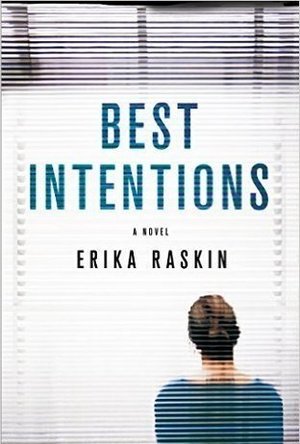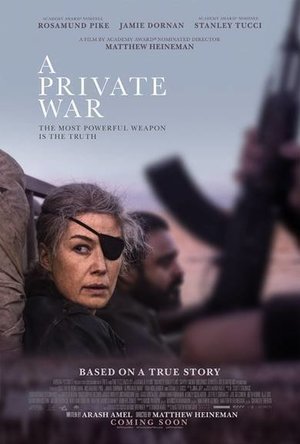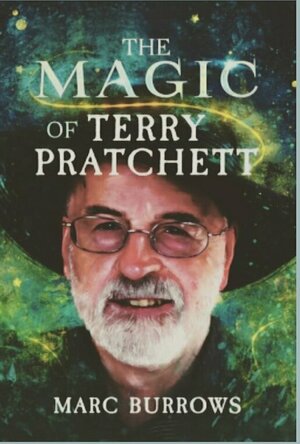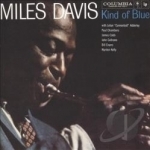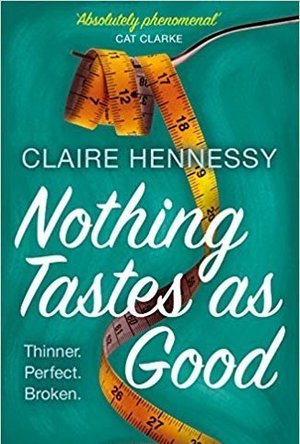Kristy H (1252 KP) rated Best Intentions in Books
Feb 13, 2018
<i>This was an interesting novel, to say the least.</i> I was immediately drawn to it, as the author apparently lives in Charlottesville, my hometown. This book is set in Richmond, VA, and she certainly captures the area and the state quite well.
The book is told entirely from Marti's perspective and it takes a little while to fall into the pattern of reading, as present-tense and past-tense are presented together in the chapters without any break (at least they were in my ARC), leaving you a bit confused at first. The back and forth can be a little awkward and jarring in the beginning, though once you get used to it, it's a pretty compelling device. The novel isn't exactly exciting in a thriller-type way, but there's <i>a fascinating element to it that keeps you reading.</i>
There's a lot going on in this book--marital issues, a discussion on hospital policies, Marti juggling work and motherhood, investigative journalism, discussion into Richmond politics, etc. Sometimes it seems a little too much: did Marti really need to be the daughter of a Congressman, for instance?
Still, Raskin is a descriptive writer, and her prose is fairly easy to read, and again, as I mentioned, it's a hard-to-put down book. She had me from nearly the beginning, when she described one of the characters as "Tommy Lee Jones in his heyday cute." (She gets me, she really gets me, I thought!)
As the novel progresses, I found it almost Jodi Picoult-esque. There's a strong emphasis on character development, courtroom drama, and plot elements designed to make you think. Sure, the characters are drawn a bit black and white--Elliot bad, Marti good, but it works: Elliot is just so awful you cannot help but like Marti even more. Did I find the novel quite as persuasive and enjoyable as Picoult in her heyday? No. But that's pretty hard to do.
Overall, I enjoyed this one. It's descriptive, oddly compelling, and was a nice change of pace from the thrillers I've been reading lately. Definitely worth a read. I'd go with around 3.75 stars, rounded up to 4 here.
I received a copy of this novel from the publisher and Netgalley (thank you!); it is available everywhere as of 08/15/2017.
<center><a href="http://justacatandabookatherside.blogspot.com/">Blog</a>; ~ <a href="https://twitter.com/mwcmoto">Twitter</a>; ~ <a href="https://www.facebook.com/justacatandabook/">Facebook</a>; ~ <a href="https://plus.google.com/u/0/+KristyHamiltonbooks">Google+</a>; ~ <a href="https://www.instagram.com/justacatandabook/">Instagram</a>; </center>
Emma @ The Movies (1786 KP) rated A Private War (2018) in Movies
Jun 22, 2019 (Updated Sep 25, 2019)
One thing I'd noted during the film was just how real the acting felt from the civilians. The reason for that (as discovered in the Q&A) was because they were actual civilians who had their lives changed by war. The moments they had on screen had an amazing impact before you even discovered that fact.
The acting talent in this does an amazing job. Tom Hollander and Corey Johnson bring us solid supporting roles, and there's a nice surprise of Stanley Tucci too. I'm only seen Jamie Dornan in last year's Robin Hood and he was reasonable in that, his appearance in A Private War is good but against all the other things happening it's not making it into my top ten things about the film.
Now... Rosamund Pike... there's no denying she's a wonderful actress and this role must have been so difficult to get right. Intensity and compassion when she's in the field and interviewing, to the sadness and emotion when she is home and struggling with her situation, Pike covers pretty much everything. There's only one moment where I didn't feel the connection to the character. Marie opens up to Paul in what feels like it should be an emotional scene but when it cuts out to the next one I was surprised that it didn't really hit as well as everything else did.
I loved the way they used subtitles in this, or rather didn't. When we see Marie talking her way through a roadblock the suspense is everywhere, there's no instant translation and that coupled with some great camera work gives you that feeling of mild panic along with the characters.
I wasn't entirely sure what I was getting myself into when I booked a ticket for this. I even had to pay for it as it was classified as an event rather than a film (which I thought was a little cheeky considering none of the other Q&A screenings I've been to have been) but it was £6 well spent.
We also get treated to hearing Annie Lennox's creation, Requiem For A Private War. Atmospheric and haunting, the song made me pause, her instantly recognisable voice hits the right tone for the film.
What you should do
When this comes out on February 15th you should definitely go and see it. It's an interesting creation and shows you a side of journalism that many have probably never even thought about.
Movie thing you wish you could take home
I've got a bathtub that Stanley Tucci is more than welcome to come and sit in... I know I've just brought the tone of this would review down with this but I don't care.

Writers' Forum Magazine
Book and Magazines & Newspapers
App
Writers’ Forum is the markets leading title for writers. Every issue features special interviews...
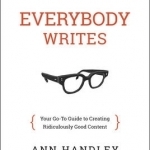
The Everybody Writes: Your Go-to Guide to Creating Ridiculously Good Content
Ann Handley and Vahe Habeshian
Book
Finally a go-to guide to creating and publishing the kind of content that will make your business...

Boxing Monthly Magazine - The boxing magazine for fight fans around the world
Sports and Magazines & Newspapers
App
Boxing Monthly is a magazine. THIS IS NOT A GAME if that's what you want go elsewhere. If you are a...
Lottie disney bookworm (1056 KP) rated The Magic of Terry Pratchett in Books
May 27, 2020
As a 32 year old female, mother and accountant you may be forgiven for expecting my book reviews to be based around chick-lit or classical novels and, although it is the case that I own several very well-read copies of Pride & Prejudice, I am wholly a child of the sci-fi/fantasy genre. Terry Pratchett novels sit alongside George RR Martin, Terry Brooks, David Eddings and Ursula Le Guin in my house; I owned and loved Discworld computer games and probably know every word to the film Labyrinth.
It could therefore be said that I would find Marc Burrow’s biography fascinating regardless: however, I am ashamed to say that, before reading this book, I knew very little about the life of the author whose books I admire so much.
Burrows structures his writing predictably enough, running through the life of Terry Pratchett chronologically, from his working-class upbringing; his career in journalism; the progression in popularity of his novels; his knighthood all the way up to his untimely death from Alzheimer’s. However, this is where an affiliation to any standard biography ends.
It is immediately apparent that Marc Burrows is an avid Terry Pratchett fan, even without reading his foreword, due to the inclusion of footnotes: a writing style which is synonymous with Pratchett. This allows Burrows, as it did with Pratchett, to provide little notes and details which cannot be in the main text without limiting the reading experience. It also allows both authors to inject a large amount of humour into their writing.
It should also be mentioned that no book has gripped me from the introduction in a long time, although I am fairly sure no other book would use the word “crotch” before we even reach Chapter One!
‘The Magic of Terry Pratchett’ is a clever, well-informed biography which perfectly encompasses the humour of the Discworld creator whilst educating the reader of his journey to becoming the icon that he is today. I have no doubt that this has been a labour of love for Marc Burrows: when the kindle says you have 20 minutes reading time left and you have reached the bibliography, you know that a whole lot of research has been done!
Sir Terry also had the tendency to embellish his stories and this is a factor Burrows does not try to hide; highlighting when facts don't quite add up and almost analysing the situation to try and discern the truth. This was such a refreshing approach to a biography: the wool is not pulled over the eyes of the reader, nor the subject blindly believed for convenience.
It is important to note that this book transgresses the existence of Discworld and “the business with the elephant” and encompasses all of Sir Terry’s work: from short stories in the local paper to his TV documentary on assisted death.
The reader will also learn of the involvement of Rhianna Pratchett in her father’s work and discover that the “man in the hat” was not always the easiest man to work with.
I am going to need at least 3 copies upon release- can we preorder?
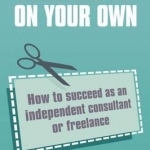
Starting Up on Your Own: How to Succeed as an Independent Consultant or Freelance
Book
"I wish this book had been available when I began my independent career. There's only one word for...
Mick Hucknall recommended Kind of Blue by Miles Davis in Music (curated)
Eleanor Luhar (47 KP) rated Nothing Tastes as Good in Books
Jun 24, 2019
So Annabel is dead. I'm studying The Lovely Bones at school so the whole beyond-death narration isn't that special to me now. But Hennessy does it pretty differently to Sebold.
We don't know much about Annabel, not at first. But we begin to learn about her while she helps her assigned "soul-in-need" - The Boss (definitely not God) has promised her a final communication with her family if she helps Julia. And this looks easy, at first - Julia is from Annabel's old school, with a loving family and good grades. Everything is fine, except she's fat. Annabel thinks this should be easy - after all, she's an expert in weight loss. She lost weight until she died.
But Annabel soon finds out that Julia's issues are a whole lot more complex than her weight. At first, losing weight helps. But then her old scars come back to haunt her, and Annabel realises that maybe losing weight isn't going to fix all her problems.
Aside from the obvious issue, this book does talk about a lot of important topics. It covers friendships and relationships, like most YA novels do, but it also combats ideas on feminism, affairs with older men, and people all having their own hidden demons.
At first, I wasn't keen on Annabel. I wanted to like her - I felt I should, because I could relate to her story so much. But she was a bitch. She wanted other people to be like her, and rather than encouraging recovery and health and happiness, she shared tipped on weight loss. It really did hurt to read. Her ideas on "perfection" and being weak for eating just really hit a nerve for me. Not because it was wrong (though I'd never encourage an eating disorder in someone else), but because it's exactly how I'd think about myself. Her behaviours, her worries, her anger - they were so real.
But Annabel, despite being dead, grows alongside Julia. Yes, she tells Julia to starve herself and run on an empty stomach and hate herself, but eventually she starts to feel for her. She wants Julia to combat her issues, to actually be happy. And she realises, despite having been so upset with her old friends for recovering, that maybe she wasted her life. Maybe she could have been something more, rather than striving to be less.
I found this really emotional. Annabel's love for her sister, the sister she neglected for years while she was focused on her goals, and the future she cut short. The way Julia's life changed when her passion for writing and journalism was overtaken by her obsession with food, calories, exercise. It's so real and so sad. And the ending isn't "happily ever after" - Annabel's still dead, Julia's in counselling - but it's real. It gives hope that things can change, that Julia can really achieve happiness.
At first, I didn't like this that much. I know Annabel is just a character, but I just didn't like her. She was one of those girls that makes anorexia sound like a choice, a lifestyle, and I hated that. But later she realises she is sick, and I actually felt sorry for her. I was sorry that she had been brainwashed by her illness into believing she was doing what was right.
The only reason I'm giving just 4.5 stars to this book is because Annabel was a bitch. Yes, she is a character, and yes, she grows considerably throughout the novel, but her encouragement of EDs just drove me insane. Personal pet peeve, I guess.
